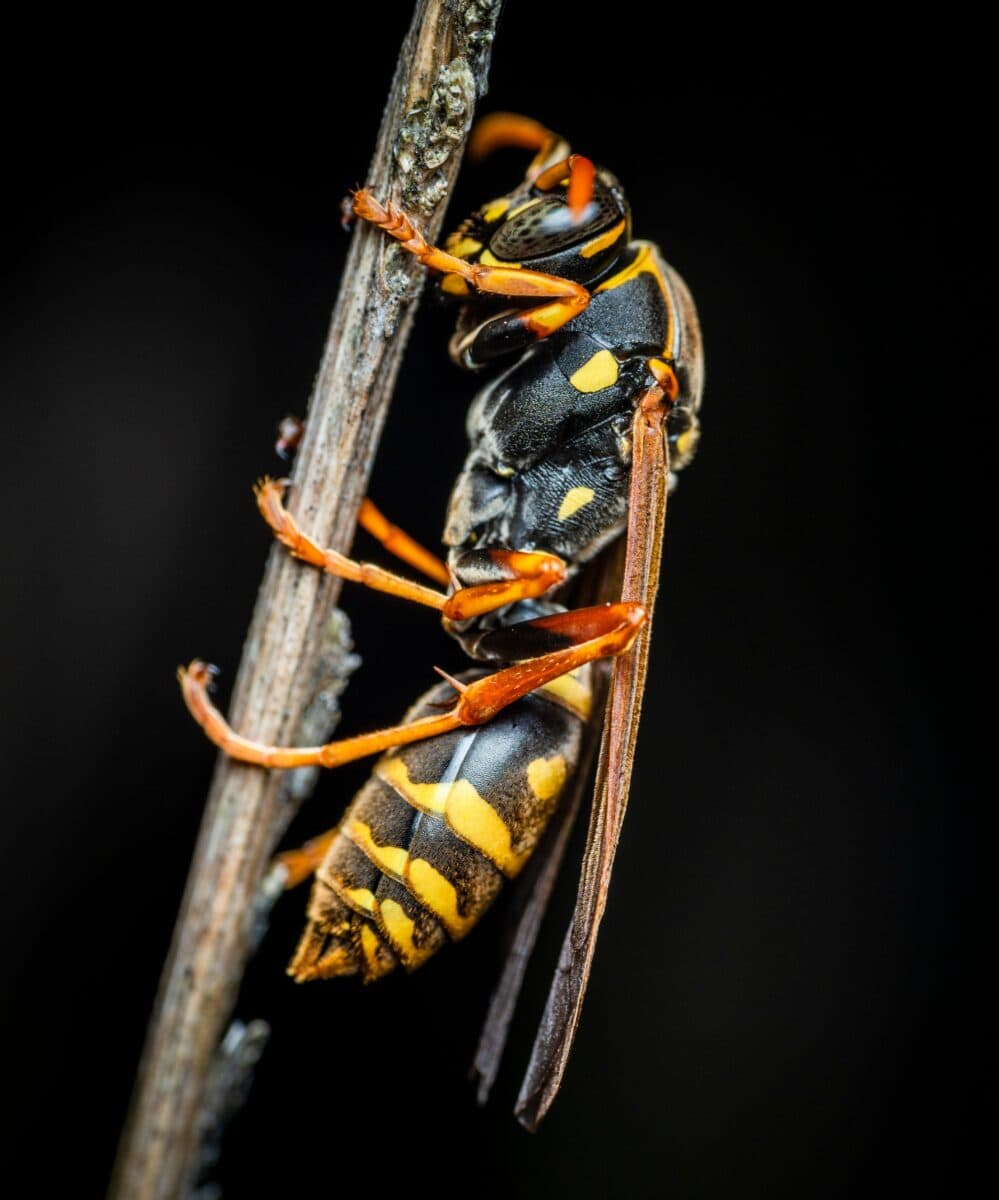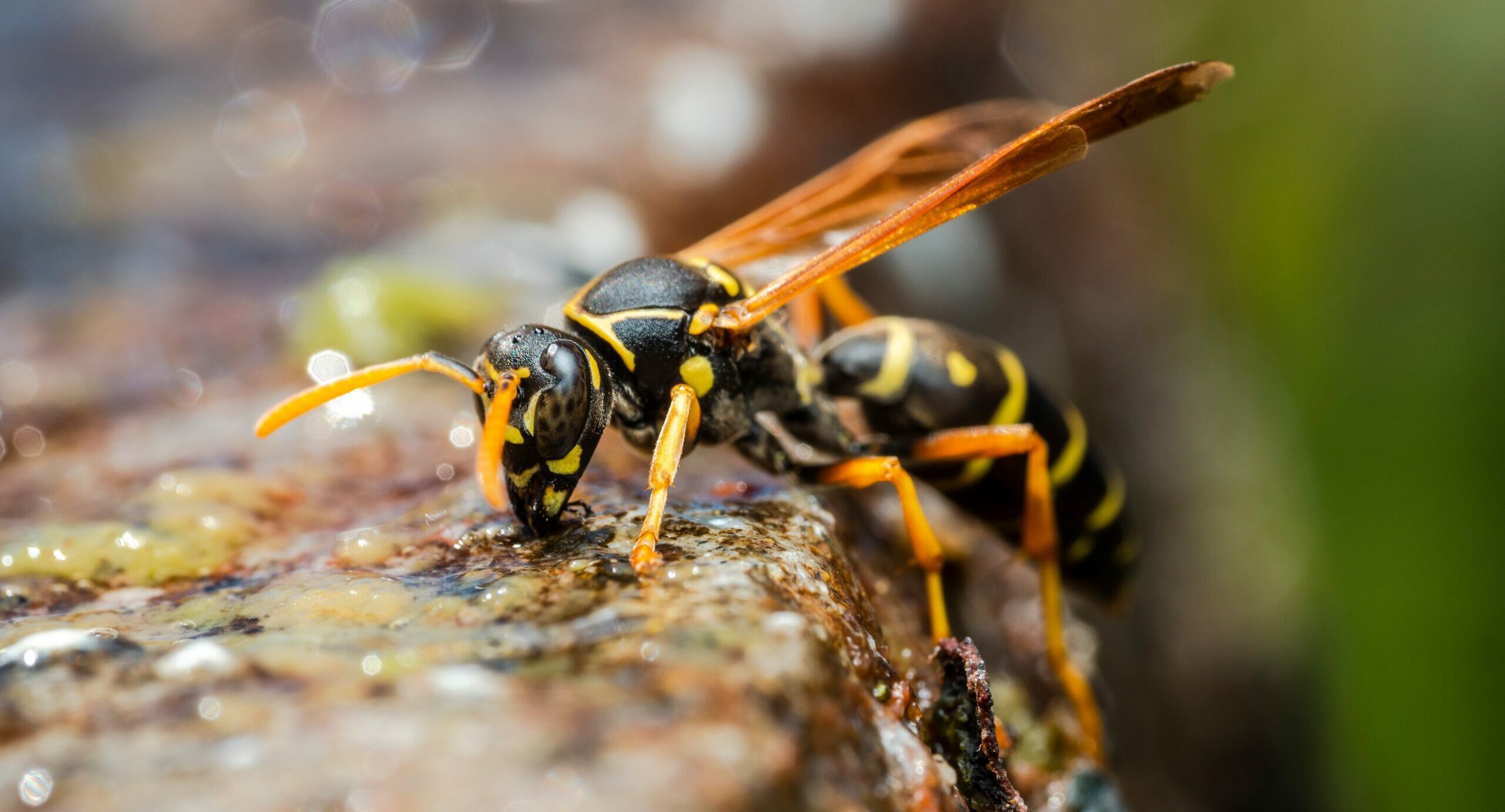On 15 September, MBIE announced the successful Endeavour Programme bids. One of these was “Whatu raranga o ngā koiora – weaving cultural authority into gene technologies targeting invasive wasps”, a five-year programme worth over $11 million.
Professor Phil Lester of Te Herenga Waka – Victoria University of Wellington and co-lead of Novel Tools & Strategies – Invertebrates is excited that this programme of work has been funded.
“This programme is a big deal because it will incorporate all sorts of things, from some basic biology/entomology to molecular genetics to Māori perspectives to the general public’s perspectives on the use of these technologies,” says Phil.
The BioHeritage wasp research legacy
BioHeritage has been invested in controlling invertebrate pest since its inception. Wasps in particular have massive impacts on native flora and fauna, and they’re also a public health issue and nuisance. BioHeritage first funded research into scaling up wasp control through our Tranche 1 research project “Taking the Sting out of the Common Wasp”.
“The aim was to deliver a significant change in wasp management, shifting from small-site control to suppression or even eradication across large areas,” says Phil, who led the project.
Phil and the team worked to develop state-of-the-art technologies to combat wasps. This included assessing the economic feasibility of these technologies, as well as their social acceptability and how practical it would be to deploy them at a large scale.

This research was continued in Tranche 2 via Novel Tools & Strategies – Invertebrates, a body of work that continued to develop a new, landscape-scale invertebrate pest management tool. While working towards this goal, the team partnered with iwi and hapū to understand how new pest control tools were perceived and to enhance kaitiakitanga and promote tino rangatiratanga.
Beyond BioHeritage
The new MBIE programme dovetails nicely with work undertaken so far, whether through BioHeritage and by others in this space. The goal of this programme is to holistically investigate ‘gene-drives’ (a genetic method that has the potential to cause extinction in pest species) using invasive wasps as a model organism. In addition to researching the effectiveness, safety and economical considerations of this tool, the programme seeks to weave cultural authority throughout the programme, ensuring that the unique culture of Aotearoa informs the development and use of gene-drive systems.

The programme will be led by Professor Peter Dearden, an insect geneticist at the University of Otago.
“I have to take my hat off to Peter, he really led the bid well and persisted with it for several years,” says Phil.
“Another reason for the success of the bid was the involvement of Professor Amanda Black, who is the Director of Bioprotection Aotearoa, a national Centre of Research Excellence. The key to developing socially acceptable gene drives is to ensure they are built with advice from the public, Māori groups, and regulators. We will carry out a programme of consultation with public and Māori groups to determine attitudes to gene-drive technologies, innovations from mātauranga Māori and find ways to mitigate concerns raised in the gene-drive systems we develop.”
Phil sees this programme as a way of continuing to grow on investments BioHeritage has made into research in this area.
“The Challenge is going to end next year, and this is certainly one way of carrying it on,” says Phil. “Peter’s programme is going to take the legacy of this research into the future.”
Jenny Leonard
